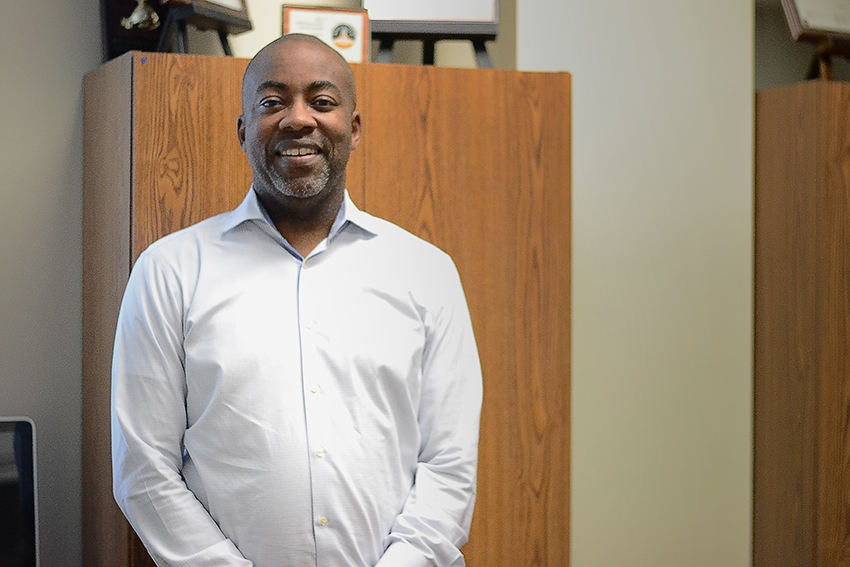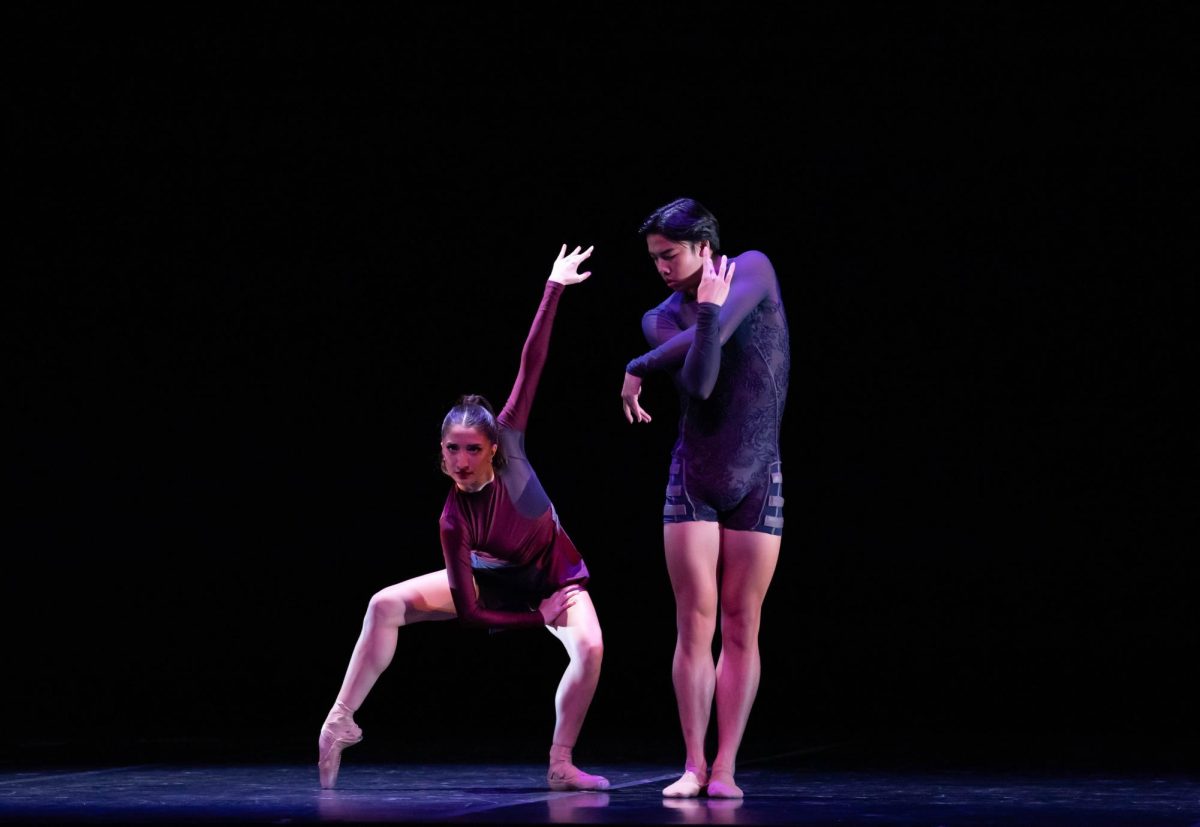As a sophomore in college with a 1.8 GPA, Leonard Moore was uncertain about his future in academia until a professor pulled him aside and showed him tough love. Now a history professor teaching at UT, he wants to give students the second chance he was once given.
“I really believe if he wouldn’t have invested in me, I wouldn’t be here, and I wouldn’t be able to in turn do that for other students,” Moore said.
The George Washington Carver Museum, Cultural Center and Geneaology Center will be honoring history professor Dr. Leonard Moore and Dr. Reginald Baptiste, director of pre-health professions at Dell Medical School, for their work helping to alleviate the crisis in black education — the national theme for Black History Month this year. Baptiste spent the last few years working to develop programs that expose youth to the medical field. Moore, associate vice president of academic diversity initiatives, works with students who come from low socioeconomic backgrounds to expand their academic possibilities through travel. The group has taken trips to Cape Town, South Africa and Beijing, China.
“One of the greatest satisfactions for me is when we take kids to South Africa or China and some have never been on an airplane before,” Moore said. “When we are flying and we are about to land, I glance over and look at those students looking out the window, and what you see is a person’s life is about to be changed.”
Para Agboga, site coordinator for the George Washington Carver Museum and Cultural Center, said that both Moore and Baptiste have gone above and beyond to help expose students to opportunities they might not have otherwise discovered.
“They are trailblazers because they are willing to go out there and do something that may not have been done before, and they are passionate about what they do,” Agboga said. “They put all of their heart and soul into it.”
Every year, the museum makes a banner with images and names of those who they believe embodied the year’s theme for Black History Month. Since the theme this year focuses on the crisis in black education, they felt the honor should fall to those who they felt recognized the crisis and did something to help.
Baptiste said his past teachers, such as his 8th grade life sciences teacher, inspired him to help young children discover their possibilities.
“I had a lot of mentors growing up in the medical center that allowed me to work in their labs, so I am just trying to do what was done for me,” Baptiste said.
Baptiste helped develop medical programs for middle and high school students that introduce them to different health professions. They include monthly talks for high school students with health professionals and summer camps that allow them to have hands-on experience with medical experience.
Moore said he felt honored to be recognized, but his greatest joy is seeing 1,200 underclassmen mature and develop their careers. Moore said he hopes he will make a difference in the lives of his students in the same way that his college professors positively impacted his own life.
“(They) really motivated me and checked me when I needed to be checked,” Moore said. “But more importantly constantly told me they believed in me.”





















